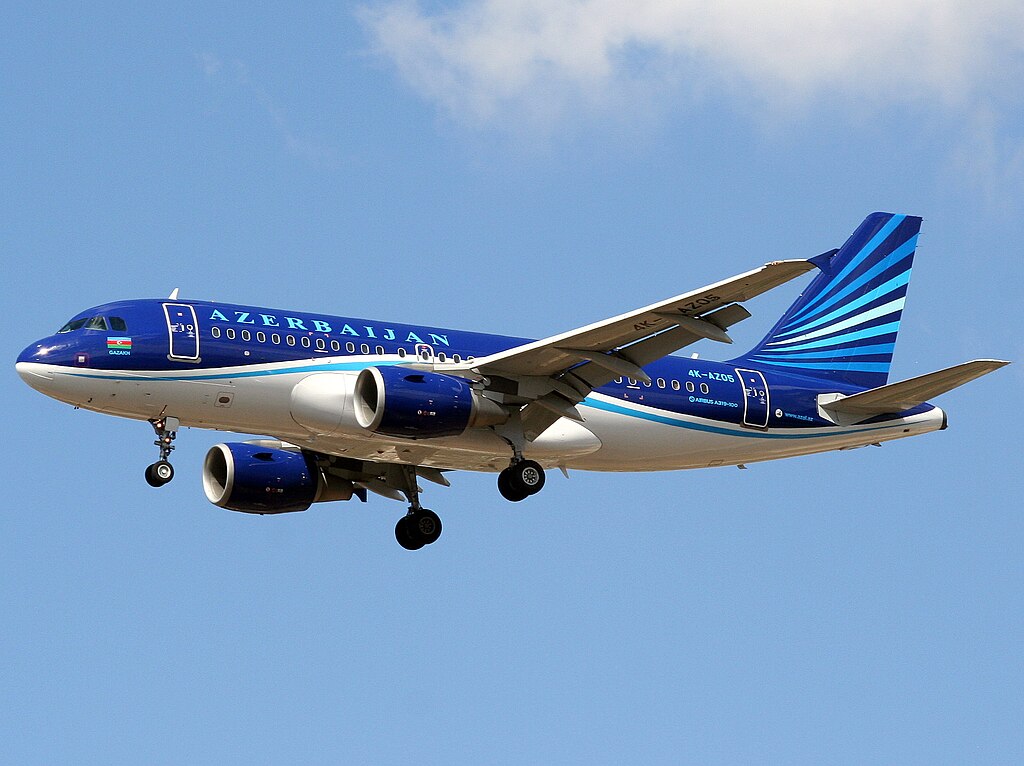Reuters reported that the Azerbaijan Airlines crash that claimed 38 lives was allegedly caused by a Russian air defense system. The revelation has sent shockwaves across international communities, reigniting tensions between Russia and Azerbaijan and raising serious questions about aviation safety and military oversight.
Crash Investigation Points to Russian Defense System
The ill-fated flight, which took off from Baku, Azerbaijan, and was bound for Istanbul, Turkey, plunged into chaos shortly after entering disputed airspace. Initial investigations hinted at mechanical failure, but new findings suggest the plane may have been struck by a Russian missile defense system, heightening suspicions of human error or a tragic misfire.
Azerbaijan Airlines released a statement expressing their grief for the victims and pledging full cooperation with investigators. Meanwhile, Russian officials have yet to issue a formal response to the allegations, though Kremlin insiders are reportedly scrambling to address the mounting diplomatic fallout.
Military analysts believe the incident occurred near contested regions where heightened military activities often escalate misunderstandings. "This tragic event underscores the dangers of operating civilian aircraft near active defense zones," said aviation expert Dr. Jonathan Redding.
Mounting Pressure on Russia and Global Aviation
The crash has reignited debates about air safety protocols in geopolitically sensitive regions. International aviation bodies are urging immediate reforms to prevent such incidents in the future. Meanwhile, Azerbaijan's government has demanded accountability, calling on Moscow to explain how its sophisticated defense systems could target a civilian aircraft.
"This tragedy highlights the need for transparency and cooperation," said Azerbaijani Foreign Minister Elmar Mammadyarov. "Families of the victims deserve justice, and we will not rest until the truth is revealed."
International relations experts warn that the incident could exacerbate already strained ties between Russia and neighboring countries. The lack of swift accountability may further erode trust, particularly in regions where military operations overlap with civilian air traffic corridors.
Social Media Erupts With Outrage and Speculation
News of the crash quickly dominated social media, with users expressing grief, outrage, and theories about the incident.
“@GlobalAviationFan” tweeted: “Heartbreaking loss of life. Civilians must never be caught in military crossfire. This calls for urgent reform.”
“@PeaceNow2025” commented: “If true, Russia must be held accountable. Civilian planes should be protected, not endangered, by defense systems.”
“@FlySafeAlways” wrote: “How does an air defense system mistake a commercial plane? This is unacceptable. Condolences to the families.”
“@GeopoliticsGuru” said: “Tensions rising in the region again. This crash will have serious diplomatic consequences. Watch this space.”
“@AviationJustice” added: “Airlines need to rethink flight paths over volatile regions. Innocent lives shouldn’t pay the price for negligence.”
“@TruthFirst” noted: “Too many unanswered questions. Transparency is critical here. The victims’ families deserve to know the truth.”



 Federal Court Fines Mobil Oil Australia A$16 Million for Misleading Fuel Claims
Federal Court Fines Mobil Oil Australia A$16 Million for Misleading Fuel Claims  Democrats Pledge Major Spending on Virginia Redistricting Ahead of Midterm Elections
Democrats Pledge Major Spending on Virginia Redistricting Ahead of Midterm Elections  The American mass exodus to Canada amid Trump 2.0 has yet to materialize
The American mass exodus to Canada amid Trump 2.0 has yet to materialize  Britain has almost 1 million young people not in work or education – here’s what evidence shows can change that
Britain has almost 1 million young people not in work or education – here’s what evidence shows can change that  Why a ‘rip-off’ degree might be worth the money after all – research study
Why a ‘rip-off’ degree might be worth the money after all – research study  Peter Mandelson Arrested in London Amid Jeffrey Epstein Ties Investigation
Peter Mandelson Arrested in London Amid Jeffrey Epstein Ties Investigation  South Korean Court to Deliver Landmark Verdict in Yoon Suk Yeol Insurrection Case
South Korean Court to Deliver Landmark Verdict in Yoon Suk Yeol Insurrection Case  FedEx Sues U.S. Government for Refund of Trump-Era Emergency Tariffs After Supreme Court Ruling
FedEx Sues U.S. Government for Refund of Trump-Era Emergency Tariffs After Supreme Court Ruling  Columbia Student Mahmoud Khalil Fights Arrest as Deportation Case Moves to New Jersey
Columbia Student Mahmoud Khalil Fights Arrest as Deportation Case Moves to New Jersey  FCC Approves Charter Communications’ $34.5 Billion Acquisition of Cox Communications
FCC Approves Charter Communications’ $34.5 Billion Acquisition of Cox Communications  Federal Judge Blocks Virginia Social Media Age Verification Law Over First Amendment Concerns
Federal Judge Blocks Virginia Social Media Age Verification Law Over First Amendment Concerns  6 simple questions to tell if a ‘finfluencer’ is more flash than cash
6 simple questions to tell if a ‘finfluencer’ is more flash than cash  Malta will gain from smart heritage
Malta will gain from smart heritage  Can your cat recognise you by scent? New study shows it’s likely
Can your cat recognise you by scent? New study shows it’s likely  AWS Data Center in UAE Hit by Fire After Objects Strike Facility Amid Regional Tensions
AWS Data Center in UAE Hit by Fire After Objects Strike Facility Amid Regional Tensions  Yes, government influences wages – but not just in the way you might think
Yes, government influences wages – but not just in the way you might think 






























